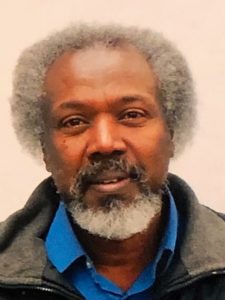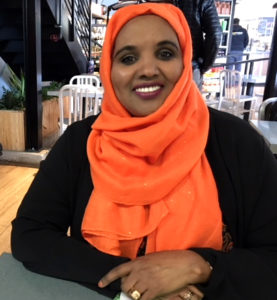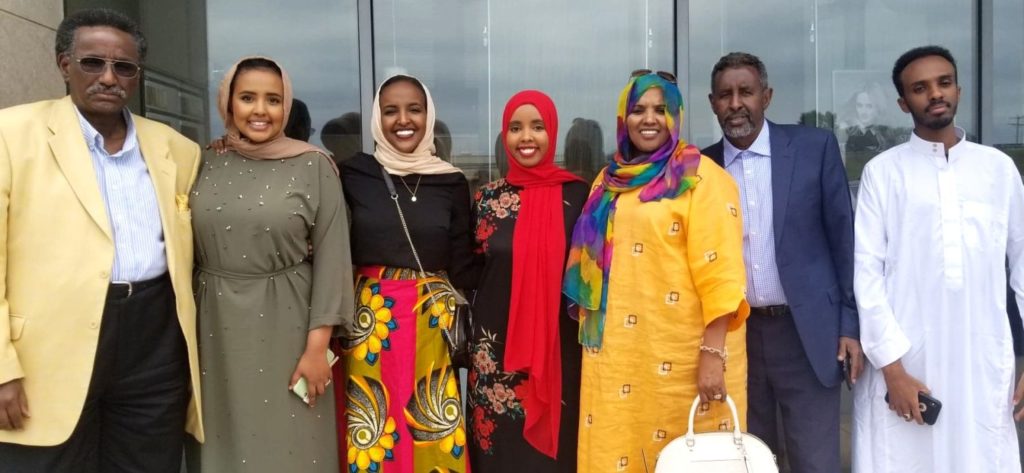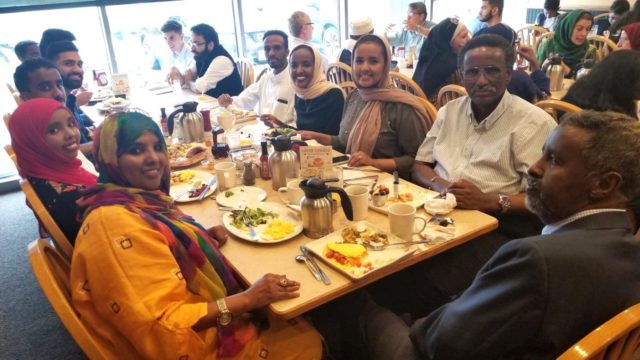Friday, April 24, marked the beginning of the holy month of Ramadan in the United States, one of the first major religious holidays to fall during the global coronavirus pandemic. However, the normal plans and traditions of almost two billion Muslims have been altered quite a bit due to isolation and social distancing around the world … including quite a few Muslims right here in Madison.
This year’s Ramadan is very different – long-standing traditions of Muslims gathering in close quarters for prayers or having dinner together in large groups after fasting are now gone, says Imam Ibrahim Saeed, president of the board of directors for the Islamic Center, the oldest of the city’s three mosques, in downtown Madison.
“Never in 40 years have I seen doors closed or activities suspended like this during Ramadan. These are challenging times,” Dr. Saeed tells Madison365. “But it’s the reality. It’s part of our civic responsibility as well as religious duty to stop the spread of the disease. Saving lives has precedence over religious service.
“Yes, it is tough to see the place close. Especially at such a prime time,” he continues. “This is the most active time for most Islamic centers because there are so many activities that go on at this time for Ramadan. There are so many community activities, lots of learning and classes and so on. So, it’s really very hard right now.”
During Ramadan, the world’s estimated 1.8 billion Muslims abstain from eating, drinking, smoking and sex during the day. But Ramadan is also a very festive season with lavish meals and evening get-togethers when the sun goes down.

“We hope its a temporary thing and that by abiding the rules of staying at home and social distancing that we will conquer this,” says Dr. Saeed a research scientist at the University of Wisconsin-Madison. “We will beat this disease and come back and be together.”
Nasra Wehelie is a devout Muslim and is heavily involved in the downtown and westside masjids (mosques) and also very involved with the youth. She is the founder of “Muslim Youth of Madison” whose mission is to bring Muslim youth together and provide them the venue to carry out recreational, educational, spiritual and charitable activities.
“This is the first time we’ve ever had this kind of unfortunate event,” says Wehelie. “The good thing about it is that it has united the community – that’s very good.”
Ramadan is a time of spiritual reflection, self-improvement, and heightened devotion and worship.
“No food or drink or any other pleasures. It’s one of the most spiritual months for Muslims. Unfortunately, this year is going to be different,” Wehelie says. “It is really going to affect the communal and fellowship aspect of it … it won’t be present due to the coronavirus pandemic restrictions.”

[Photo by A. David Dahmer]
“Traditionally, we come together for these meals with families and friends,” Wehelie says. “This year, we can’t gather with anyone so everyone is kind of locked in their own house.”
After the Iftar, there is a congregational prayer called Tarawih during the holy month of Ramadan.
“Unfortunately, that won’t happen either because all of the Masjids will be closed as they follow the order of staying at home,” she says.
The leaders of the three major masjids (mosques) in Madison have come together to construct and send a unified message out to the community regarding the general guidelines to counter the spreading of COVID-19 during the holy month of Ramadan and beyond. Those leaders include Imam Saeed, Imam Abdiwahid Arab of the Madinah Community Center, Inc on the west side, and Imam Driss Akawn of the Islamic Center of East Madison.
All three have sent out the following message to Madison’s Muslim community:
- All the Masjids will be closed to all congregational activities.
- Ramadan activities are suspended including group prayers, group Iftar and Community Iftar
- Each Masjid will use virtual learning and online donation platform.
All three Muslim community centers in Madison are stressing that people should stay connected by whatever means they have during this time of isolation.
“People are calling each other and connecting with friends and family. Some people are doing Zoom Iftar,” Wehelie says. “The three masjids have unified and have created an online platform where the Imams are discussing the topics of Ramadan so people can call in for the virtual lectures that they are giving.
“This helps people to remain engaged in other spiritual activities and feel like they are still part of the community,” she adds.
Dr. Saeed says that he just got done with a class online that he used to do for the young people of the Islamic Center.
“I have 22 kids and we just had the first meeting today and they were very happy that we were connected again, even if it was online,” he says. “It was great to be able to keep engaged with the young people.
“We are definitely using the Internet, the phones, Zoom. The school district has given computers to the young people, so it’s actually made it easier to connect in that way,” Saeed adds.
Without a doubt, during the holy month of Ramadan, the daily routines of Muslims around the world have been forced to change.
“It is very hard. You can’t invite people over to break the fast with you, which is normally the habit that we do,” Dr. Saeed says. “You can’t pray together in the mosque. You can’t do that. It’s very tough; very hard for us.”

It can be a lonely time for everybody. But Wehelie also sees some positives amongst the negatives.
“It’s a great opportunity to take a step back, deepen our reflection, and perform the fasting in a more spiritual way,” she says. “You are seeing things that are positive, too.”
Acts of charity are always important during the month of Ramadan, but have become especially important during the coronavirus pandemic. Local Muslim leaders have come together to create an online COVID-19 platform to support Muslims and non-Muslims who have been affected by the pandemic.
“We’ve been delivering food that’s been donated to us. It’s a curbside pick-up. So people who have been affected by the coronavirus pandemic can stop by and pick up some food and go,” Saeed says. “It’s just an effort to help a little bit what we can.”
The Muslim Community is helping to organize and fund the COVID-19 Assistance Program to assist all families in need regardless of their religion.
“We know how important these precautions are in flattening the curves and saving lives,” Saeed says. “Like I said, it’s temporary. When this ban is lifted, we will hopefully get back to our normal lives and be all together soon.”




























